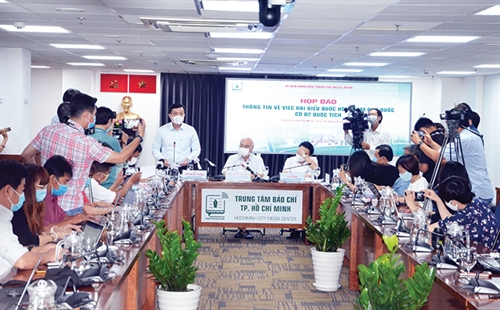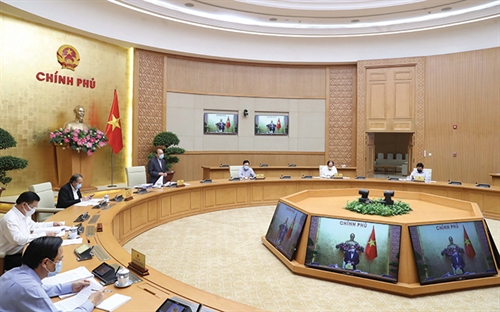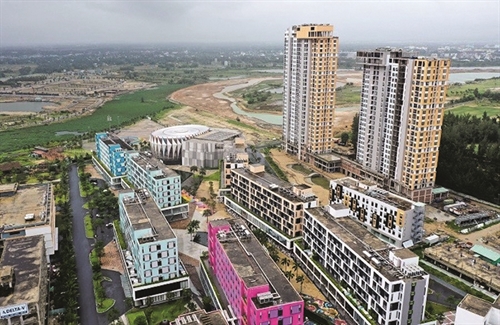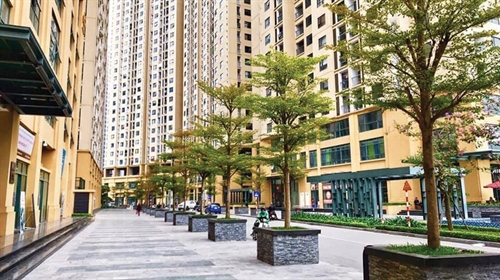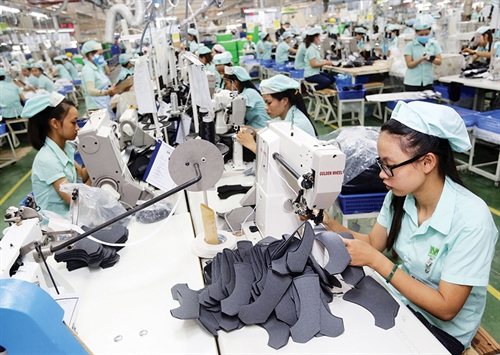In early June this year, students of the Ho Chi Minh City Medicine and Pharmacy University, a public university managed by the Ministry of Education and Training, were shocked to hear that the tuition fee for the 2020-21 academic year will increase to VND 30-70 million (around USD 1,300-3,000), a significant hike from the average fee level of VND 13 million applied in the previous academic year.
As explained by a representative of the Ho Chi Minh City University of Medicine and Pharmacy, the new tuition fee scheme was designed in line with the university’s financial autonomy plan to be applied from the 2020-21 academic year. The university was entitled to subsidies from the state budget which, however, would be eliminated as a result of the application of the autonomy mechanism. Then it needed to increase tuition fees to cover its operating expenses.
The right to decide on tuition fees may be the most recognizable aspect of autonomy in higher education. However, autonomy is far more than tuition fee-related decision. According to Prof. Dr. Tran Hong Quan, former Minister of Education and Training, autonomy in higher education constitutes a big reform policy carried out on the basis of placing trust in and delegating responsibility to subordinate bodies, removing obstacles in management work, granting universities the right to self-determination, and creating an innovative free space for academic activities and administration of universities.
“This is a step in democratization of higher education,” Quan said at the Vietnam Education Conference 2020 under the theme “Autonomy in higher education - From policy to practice” which was held in Hanoi on November 27 by the National Assembly’s Committee for Culture, Education, Youth, Adolescents and Children.
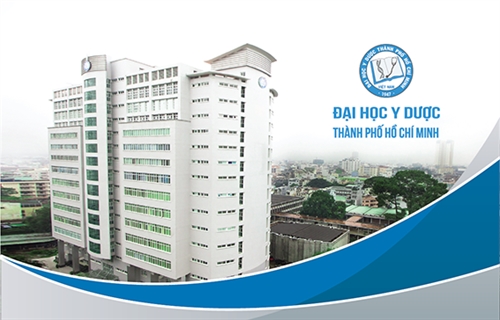 |
| The campus of Ho Chi Minh City University of Medicine and Pharmacy__Photo: https://ump.edu.vn/ |
The mechanism of autonomy in higher education has been applied on a pilot basis to 23 universities in Vietnam since 2014 under a governmental resolution, coded 77/NQ-CP. In November 2018, the National Assembly passed Law 34/2018/QH14 Amending a Number of Articles of the Law on Higher Education (Law 34) with a provision defining autonomy as “the right of a higher education institution to determine its own targets and select methods to realize these targets; to decide and assume accountability for their professional and academic activities, organization, personnel, finance, assets and other activities in accordance with law and capacity of the higher education institution itself.” Later in December 2019, the Government issued Decree 99 guiding the implementation of Law 34 (Decree 99), devoting one article (Article 13) to specifying autonomy and accountability of higher education institutions.
Evaluating the results gained after six years’ trial application of the autonomy mechanism in higher education, Deputy Minister of Education and Training Hoang Minh Son said most of the participating universities have made breakthroughs in their training and research activities, which helped improve the performance of national higher education.
Particularly, the universities had attracted more lecturers with PhD degrees, enrolled more students, and launched more training programs; the number of their studies published in international academic journals increased 10 times, accounting for 45 percent of the country’s total internationally-published studies; and revenues and expenditures of the participating universities increased 1.5 times while state budget subsidies for them decreased 2.1 times in the last six years, Son revealed at the conference.
Financial entanglements
For the time being, the matter of concern of most universities joining the pilot autonomy program is how to have enough funding for their operating expenses.
Statistics showed that universities’ finance remained unsustainable with tuition fees still making up a high proportion of their revenues at about 80 percent, while earnings from research activities were modest and the state funding reduced sharply. As a result, most universities had to increase tuition fees to cover their operating expenses. The aforesaid story of the Ho Chi Minh City University of Medicine and Pharmacy can be cited as a typical example.
“Given the fact that service revenues of most universities are limited and just represent a small ratio in universities’ total revenues but must be shared with learners through setting up student support funds, etc., the funding for professional activities will be consequently reduced. When universities have to seek sources of funding for their investment activities by themselves, they will get into more difficulties with their operating expenses,” said Dr. Hoang Duc Long, Principal of the Ho Chi Minh City-based University of Finance-Marketing.
According to Assoc. Prof. Dr. Hoang Van Cuong, Deputy Principal of the National Economics University - one among the first universities to apply the autonomy mechanism in the country, it is unavoidable that universities have to use collected tuition fees to cover current expenditures as well as other expenses. “The current law stipulates that tuition fees must be calculated accurately and sufficiently to cover all expenses, including operating expenses, expenses for writing of syllabuses, grant of scholarships, procurement and maintenance of teaching equipment, etc.,” Cuong said.
Agreeing with Cuong, Assoc. Prof. Vu Thi Lan Anh, Deputy Principal of the Hanoi Law University, worried that this may lead to a negative situation where universities merely attach importance and pay attention to financial autonomy, seeking ways to increase revenues from tuition fees at any cost.
“Universities might neglect their social responsibility [toward leaners, employers and national socio-economic development]. Tuition fee increase may deprive poor pupils of the opportunity for accessing higher education,” Lan Anh said.
The matter of training quality
Addressing the conference, Christophe Lemiere, Human Development Program Manager of the World Bank in Vietnam, said despite the fact that Vietnam’s higher education had been improving, its quality was still lower than that of other ASEAN countries.
Research in higher education in Vietnam was still modest, Lemiere said, adding that three ministries, Education and Training; Labor, Invalids and Social Affairs; and Science and Technology, were involved in higher education but they had not cooperated with one another effectively. Meanwhile, the connection between enterprises and universities was not clear. As a result, many graduates still lack skills in management or technology, failing to meet the requirements of employers.
He suggested that when universities were given autonomy, they must be accountable, particularly for ensuring training quality.
The question here is how to ensure training quality amidst limited funding sources?
According to Principal of the Hanoi University of Science and Technology Huynh Quyet Thang, autonomy in higher education will help improve training quality but require corresponding increase in investment in training activities.
Breakthroughs can hardly be achieved if universities rely on increase of tuition fees and “live mostly on proceeds from tuition fees”, Thang commented. “In order to raise training quality and reach international standards, universities need to seek different funding sources such as cooperation with businesses, technology transfer, state investment, etc.,” he suggested.
Principal of Vietnam National University-Ho Chi Minh City’s University of Technology Mai Thanh Phong shared Thang’s opinion, adding that universities should be granted the right to commercially exploit research outcomes and exempted from taxes concerning these activities.
From a macro perspective, in order to help universities lessen reliance on tuition fees, the Vietnamese State should increase its funding for higher education to around 0.8 percent of GDP, Christophe Lemiere recommended, adding that Vietnam spent up to 20 percent of GDP on education but higher education received only 0.23 percent. The State should also grant more scholarships for disadvantaged students and more loans for students to attend universities, thus mitigating negative impacts of tuition fee increase on the society.
In fact, autonomy in higher education is not only provided by the Law on Higher Education but also governed by the Laws on Management and Use of Public Assets; Public Investment; the State Budget; Cadres and Civil Servants; and Public Employees, among others. Hence, in the course of implementing Law 34, these laws as well as their guiding texts should also be reviewed and revised, if necessary. In addition, application of the autonomy mechanism must be accompanied with other conditions such as establishment of university councils, separation between management and administration; and delegation of powers between universities applying the autonomy mechanism and their attached units.
Vice Chairwoman of the National Assembly Tong Thi Phong said Vietnam had kept improving its legal framework on higher education to help it develop.
“Many policies have been developed and implemented to enhance autonomy in higher education,” she said, but admitted that gaps between policies and practice remained.
“The gaps and challenges drive us to change and innovate higher education,” she said, adding that raising the effectiveness of autonomy aimed to make use of universities’ strengths and then, increase training quality as well as human resource quality.- (VLLF)

